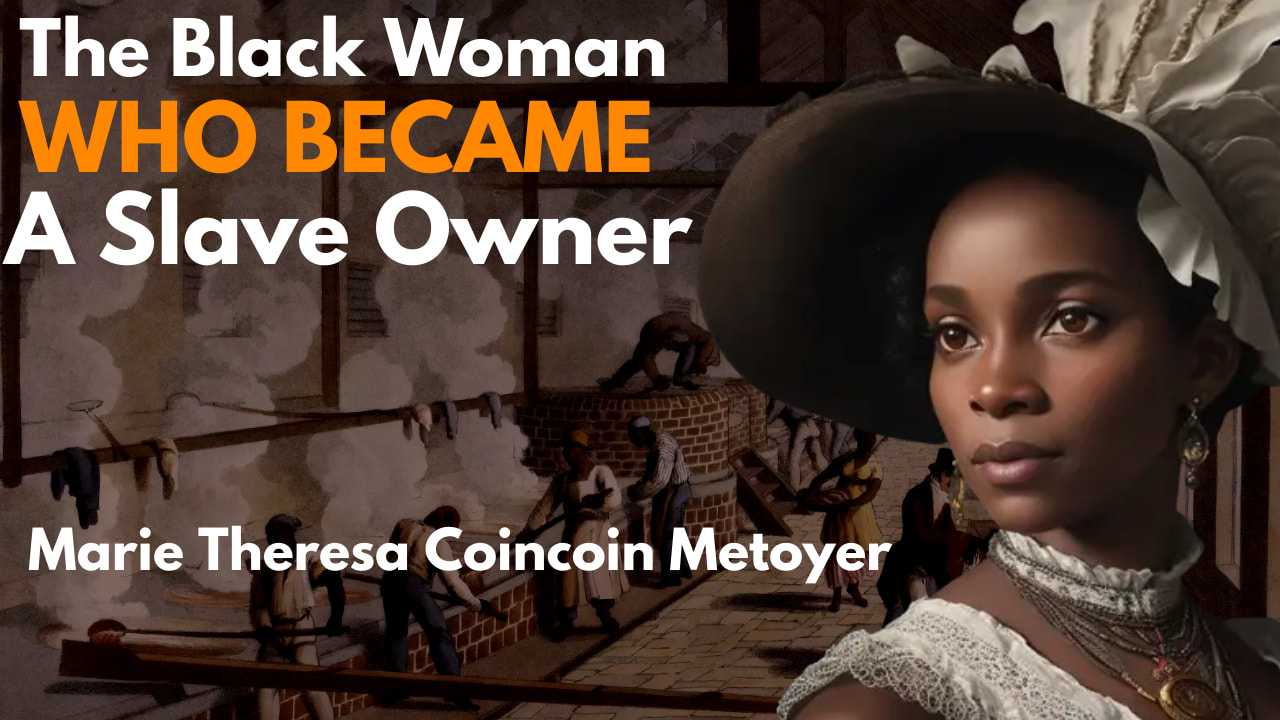|
Marie Theresa Coincoin Metoyer was born in 1742 near Natchitoches, a French settlement in the southern United States, Marie Theresa was of African and Native American descent. Her heritage, unfortunately, made her a victim of racial oppression, and slavery. From a young age, Marie Theresa displayed extraordinary intelligence and a thirst for knowledge, but opportunities for formal education were limited for her and her people. Nonetheless, she learned pharmacology and nursing skills from her parents and her community, growing up deeply appreciating her heritage and culture. By the time Marie became an adult, she was a mother of 5 children and was serving a French Creole family that owned her. Despite the harsh conditions, she remained resilient and resourceful, finding solace in her faith and determination to create a better life for herself and her loved ones. Marie's life took a significant turn when she met Claude Thomas Pierre Metoyer, a wealthy French landowner and merchant. The two developed a strong bond, and despite societal taboos, they began a relationship that defied the norms of the time. Over the years, Marie Theresa and Claude had ten children together, a family that would ultimately play a pivotal role in her life's story. Claude's wealth and influence allowed him to secure freedom for Marie Theresa in 1778, and she became a free woman of color. Marie’s owners wanted to sell her away because of her relationship with Claude. Embracing her newfound freedom, she actively engaged in business and property ventures. Most notably, trapping bears and selling their oils and furs, along with trapping and selling turkeys, indigo, and tobacco. Marie Theresa was a skilled entrepreneur and amassed a substantial estate, eventually becoming one of the most prosperous landowners in Louisiana. But Marie Theresa's ambitions extended far beyond personal success; she sought to secure freedom for her children and their descendants. In a daring and unprecedented move, she convinced Claude to legally acknowledge their children and grant them freedom, ensuring they could lead self-determined lives. By 1788, Marie Theresa and Claude had a massive land grant, and they established a community named Melrose Plantation, which was cultivated and developed by the family. This place would later symbolize African-American history and perseverance in Louisiana. Despite the challenges posed by slavery's persistence in the region, Marie Theresa was instrumental in securing education and vocational training for the African-American community, particularly her own children. She created opportunities for them to gain knowledge and skills that would be essential in the years to come. Marie Theresa Coincoin Metoyer passed away in 1816, leaving behind a profound legacy that has reverberated through the generations. Her descendants would become influential landowners and entrepreneurs, advocating for the rights and welfare of African-Americans throughout the period of American slavery. References: https://www.canerivernha.org/stories/marie-th%C3%A9r%C3%A8se-coincoin https://en.wikipedia.org/wiki/Marie_Th%C3%A9r%C3%A8se_Coincoin
0 Comments
Leave a Reply. |
Details
Categories
All
Click Here to join our mailing list
|
Contact Us: |
Connect With Us |
Site powered by PIT Web Design


 RSS Feed
RSS Feed



